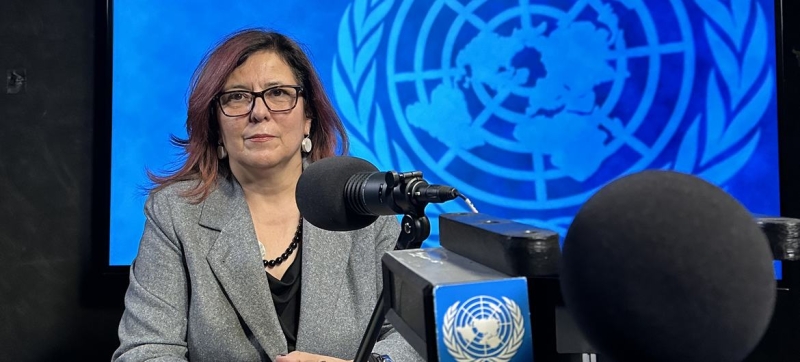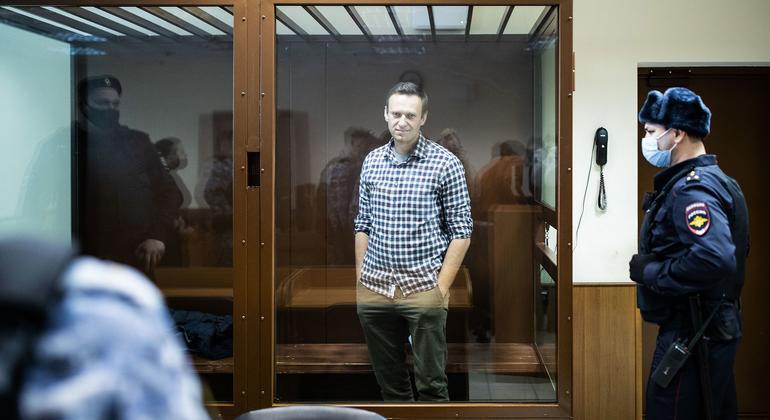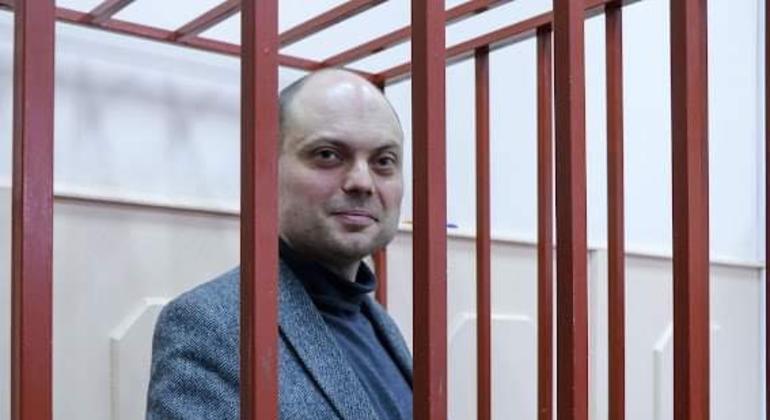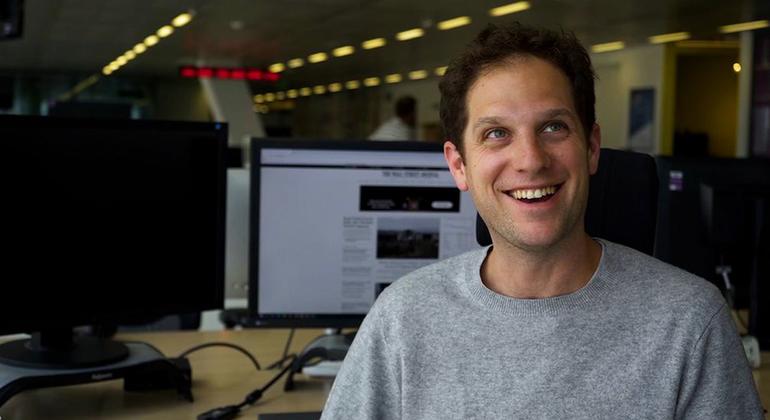
Special Rapporteur on Human Rights in Russia Mariana Katsarova. Special Rapporteur on Human Rights in Russia: Navalny Should Have Been Released Along with Other Political Prisoners Human Rights
UN Special Rapporteur on the situation of human rights in the Russian Federation Mariana Katsarova commented on reports of a prisoner exchange involving Russia and a number of other countries in an interview with the UN News Service.
UN News Service: Good news from Russia has arrived, how can you comment on it? You have made so many statements calling for the release of these people, and now this day has come.
Mariana Katsarova: Yes, this day has come, I can’t even believe it. In the dark times we live in, when every day in Russia there are new arrests, new trials, and the news every day reports on shocking human rights violations, suddenly – such good news. I think many of us and many in Russia – human rights activists, members of civil society – just cried with joy today.
Now news is coming in that the group that was exchanged is 26 people from both sides, and many governments participated in the process. So this is truly an unprecedented diplomatic act. And this may be the largest group of political prisoners exchanged since the Cold War.
Of course, today we are happy that, in the end, people have been released who, first of all, should not have been convicted, such as Vladimir Kara-Murza, Evan Gershkovich, Alsu Kurmasheva, Oleg Orlov, Sasha Skochilenko, FBK members, Lilia Chanisheva and Ksenia Fadeeva and others.

We are happy, but, of course, we do not forget that at least 700, and, according to some estimates, more than a thousand political prisoners remain in Russia. Among them are people like, for example, Alexey Gorinov in a serious state of health and like Berkovich and Petrichuk, Dmitriev. Many remain, we may not even know all the names.
Today we must once again call for their immediate and unconditional release from prison in Russia. They should not be there. They are there on charges of expressing their position against the war against Ukraine. Including Evan Gershkovich and Alsa Kurmasheva, by our count, at least 33 journalists are imprisoned in Russia precisely because they wrote reports and materials against the armed invasion of Ukraine and the war that has been going on for two and a half years.
It is very important to say today that we will have a group of outstanding and most courageous people who will add their voices to our ongoing efforts to free all political prisoners from Russian prisons.
It is also important to talk today about the fact that the Russian Federation has obligations as a member of the UN, as a state that has signed a number of international UN conventions, not to apply laws and amendments to laws that have been introduced in the last two and a half years in connection with the war against Ukraine. These laws violate freedom of speech, freedom of expression, freedom of association. They are aimed at silencing the voice against the war among Russian civil society, among journalists, among anti-war activists. This is why there are currently such a large number of political prisoners in the Russian Federation.
Read also:
UN experts: Russia must release human rights activist Alexei Sokolov, arrested for posting the Facebook logo
Today we must remember that this exchange and this release of political prisoners took place without Alexei Navalny. If he had remained alive, he should have been part of this exchange.
On the other hand, we know that these exchanges are not within the legal field. These are diplomatic agreements between governments. And, of course, there are precedents in the world when it turns out that in order to get people detained from other countries, arrests are increasing. And there are, of course, concerns that the exchange is a one-off act.

We must not forget that all governments must use their influence on the Russian authorities to ensure that they unconditionally and immediately release all of the approximately 1,000 prisoners. And so that they do not use the new legislation and amendments to laws to arrest new anti-war activists, human rights defenders and journalists.
Overall, I think this is the first step, this is the first sign, and it is really very joyful. Thank God that Vladimir Kara-Murza is among the people released today. My personal concern after Navalny’s death was related to the fact that Kara-Murza and Gorinov could be next, because their health was very poor. Like Navalny, they were kept in punishment cells and punishment cells for a long time – with or without reason. I am receiving information that punishment cells and punishment cells are widely used against a group of political prisoners. Kara-Murza has a disease, and even according to Russian law he should not be imprisoned.
I also see a practice being used whereby some political prisoners simply disappear for a short time from the prison where they are being held and are not given access to lawyers. This happened to Navalny last year. The same thing happened to Alexei Gorinov in December 2023. And recently there was a similar situation with Vladimir Kara-Murza, when he was transferred to a prison hospital on the other side of Omsk and denied access to his lawyers and family for seven days.

In essence, I consider these to be short-term forced disappearances of political prisoners. And this is beginning to take shape as a trend, as a practice against political prisoners in the Russian Federation. And this must be stopped at the highest government level if someone allows themselves to do this in individual colonies. But since this happens to different people, at different times, in different colonies, in different places in the Russian Federation, the conclusion suggests itself that this is already a practice that is being specifically applied.
*Special Rapporteurs are part of the so-called Special Procedures of the Human Rights Council. Special Procedures experts work on a voluntary basis; they are not UN employees and do not receive a salary for their work.
